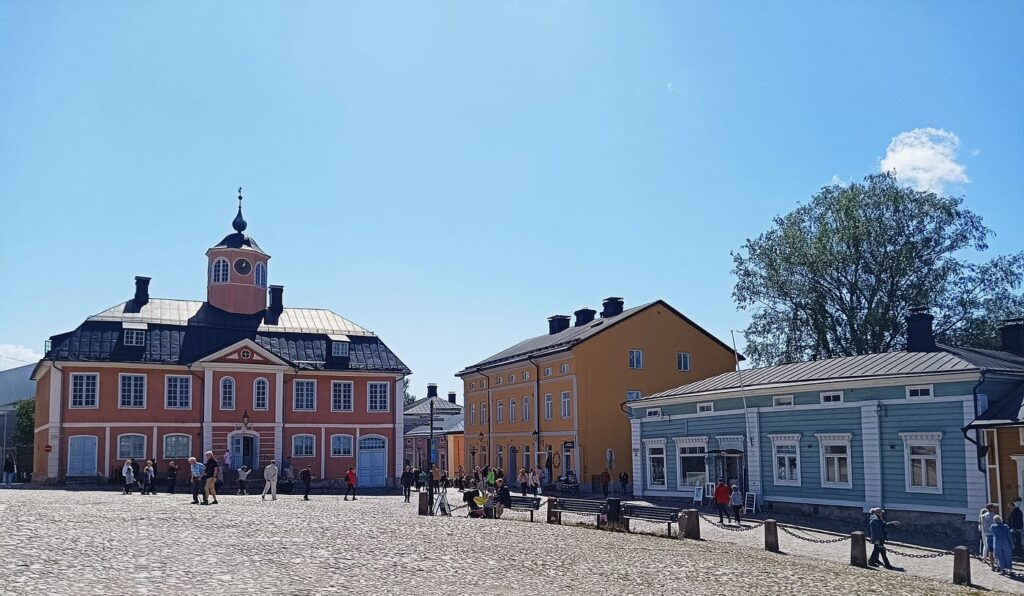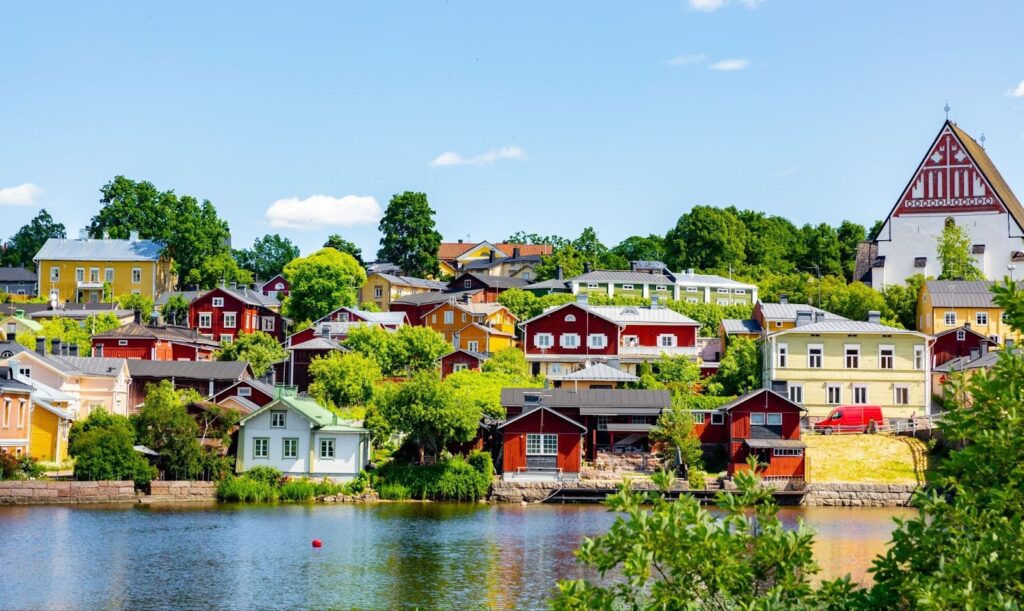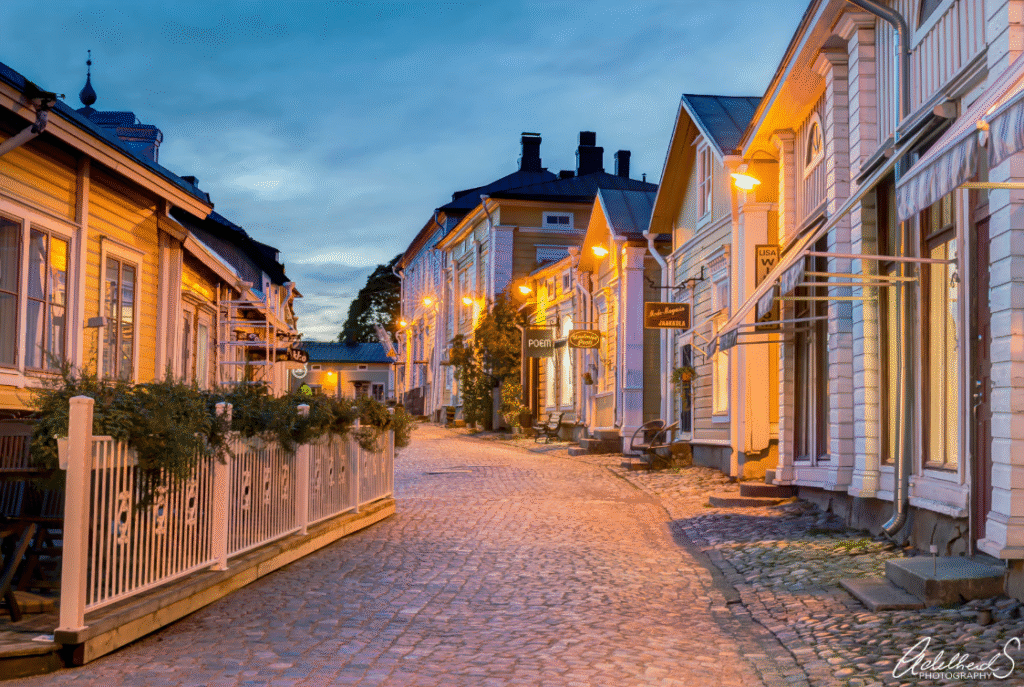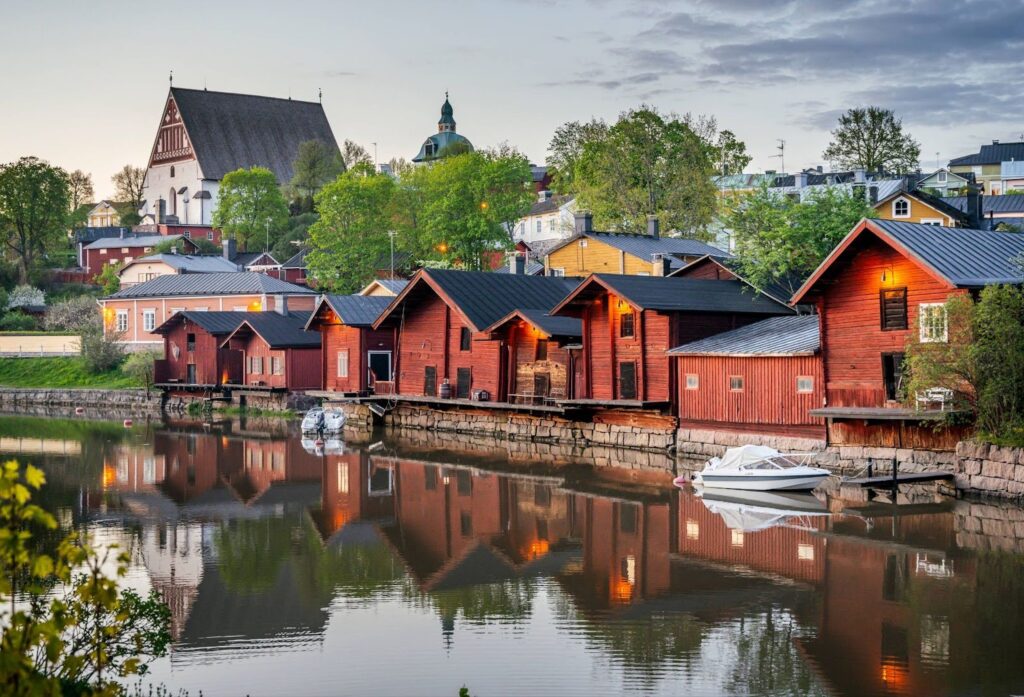History of Porvoo A Glimpse Through Time
Porvoo, one of Finland’s oldest cities, boasts a rich history dating back to the Stone Age. In ancient times, the Porvoonjoki River served as a vital trade route for the inland Tavastians. These early settlers founded villages such as Hattula (later Strömsberg) and traded actively in Saksala, an early commercial center known as “the place of the Germans.” The name of the river, possibly Kukinjoki, is thought to originate from the medieval trade vessel “cog,” used extensively in the Baltic Sea.
Swedish colonization began in the 13th and 14th centuries, following the Second Crusade against the Tavastians. Led by the Catholic Church and the Swedish crown, settlers from Svealand arrived with incentives such as cattle, seeds, and tax exemptions. Porvoo received official town rights around 1380, becoming the third Finnish town to do so, although some sources claim its founding as early as 1347. In the centuries that followed, the town saw significant developments including the relocation of the episcopal see in 1723 after Sweden’s loss of Vyborg.
Despite a devastating fire in 1760 that destroyed two-thirds of its buildings, Porvoo was rebuilt on its medieval foundations. The city played a pivotal role in Finnish history when Tsar Alexander I declared Finland an autonomous Grand Duchy at the Diet of Porvoo in 1809. Later, in the 20th century, Porvoo became a spiritual symbol for Lutheran unity through the Porvoo Communion. Finally, in 1997, the modern city was officially formed through the unification of the city and rural municipality of Porvoo.
Ancient Settlement
Inhabited since the Stone Age and historically used as a trade route by the Tavastians.
Swedish Colonization
Settled by Swedes after the Second Crusade, with town rights granted in the 14th century.
Religious Significance
Became the seat of a bishopric in 1723 after the loss of Vyborg to Russia.
The Great Fire of 1760
wo-thirds of the city was destroyed but later rebuilt on its original layout.
Political and Cultural Role
Site of the 1809 Diet of Porvoo and home to the Porvoo Communion agreement.



